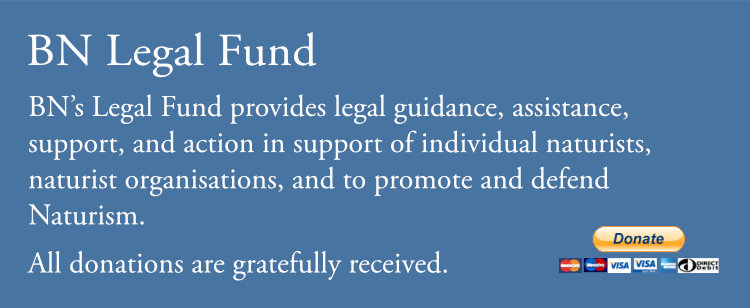Consent: Stopping the Misuse of Intimate Images
Among the many proposed bills outlined in the King’s speech yesterday was the indication of plans to deal with the creation of intimate images without consent. The Online Safety Act has already criminalised revenge porn and upskirting but has left many circumstances where women in particular suffer from the ease of digital image creation that we live with today.
The subject is of interest to Naturists due to the amount to time we spend naked and how frequently we appear naked in photos, but far more important are the underlying principles of Naturism. Naturism is founded on respect for one another. Last year a study by UN Women UK found that 97% of women aged 18-24 have suffered sexual harassment while 28,201 incidents of private sexual images being disclosed without consent were reported to the police between 2015 and 2021. Such shocking statistics reflect an unsatisfactory level of respect for women and demand attention. The work of British Naturism promotes the right of people to freedom of choice and expression. That might be the choice to live naked, but it might also be the choice to not be seen naked. The central issue here is consent, the decisions about our own bodies should be our own to make. The creation or distribution of intimate images without consent can be as harmful as any other sexual offences.
It will come as no surprise that the Law Commission approached British Naturism for input as early as 2020 when the “Taking, making and sharing intimate images without consent” project was being launched. Our expertise in respectful handling of nudity was of value and we were pleased to see the recommendations of the final report reflect our own recommendations very closely. In particular the Law Commission found our input on how we define and establish consent very helpful as they were keen to deal with exploitation without accidentally criminalising legitimate behaviour, such as consensual nude recreation. To achieve boundaries that will be applicable in practice, the recommendations align with existing legislation such as consent being considered in the same terms as consent for other sexual activity and the limits of intimate linked to a reasonable expectation of privacy as well as the nature of the image.
The passage of such recommendations into law will be an asset to Naturists. In the UK we see a male-heavy gender imbalance in the Naturist community because although people are treated with respect at Naturist events, with many women reporting that they feel at their safest, the abuse, harassment, and objectification that women experience elsewhere makes it difficult for them to imagine that it would be any different if they are naked and they miss out on a wholly-positive experience. If as a society we move towards a situation where sexual exploitation is not tolerated, we will all enjoy much greater freedom to live as we chose. Our commitment to helping people reclaim ownership of their bodies continues and this is one step along the way. Therefore, we are proud of the small contribution we made and hope to see progress towards an attitude of respect for all.
Mark Bass, President of British Naturism













